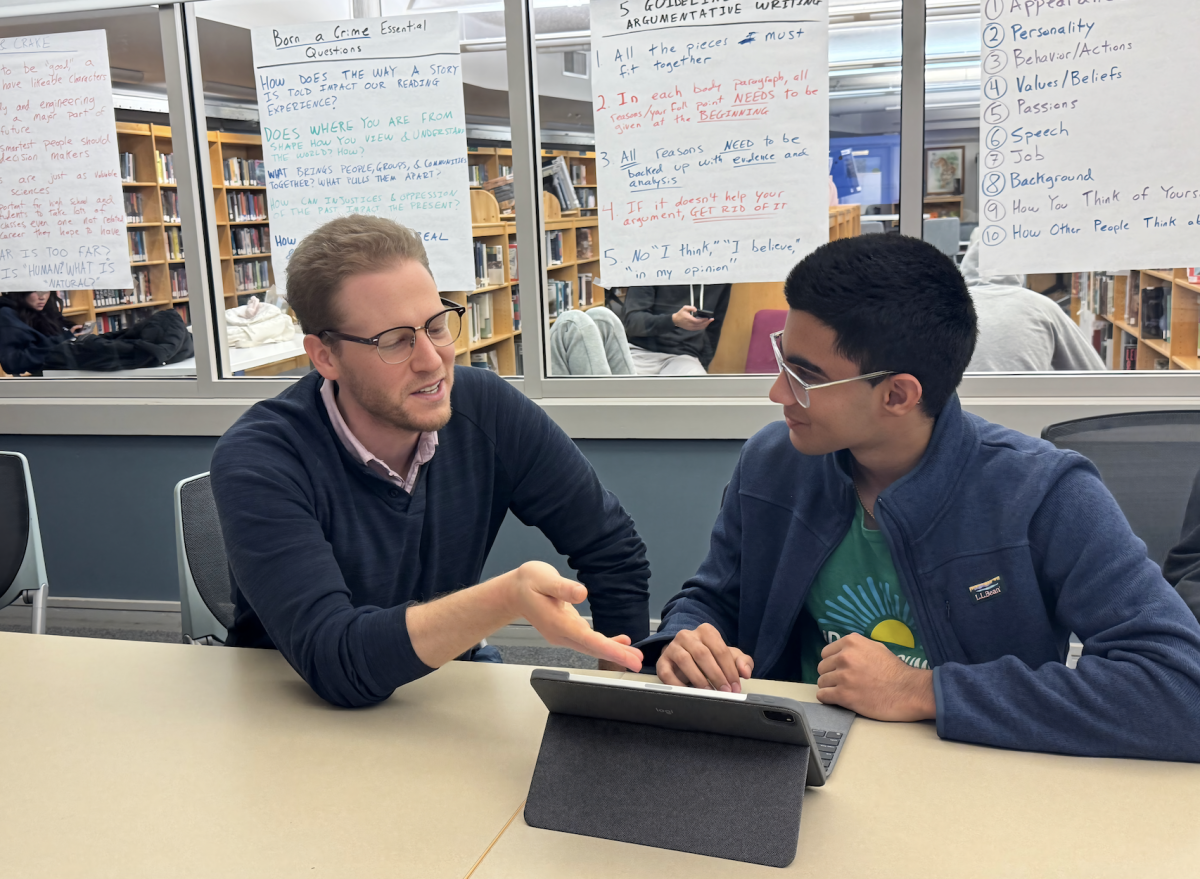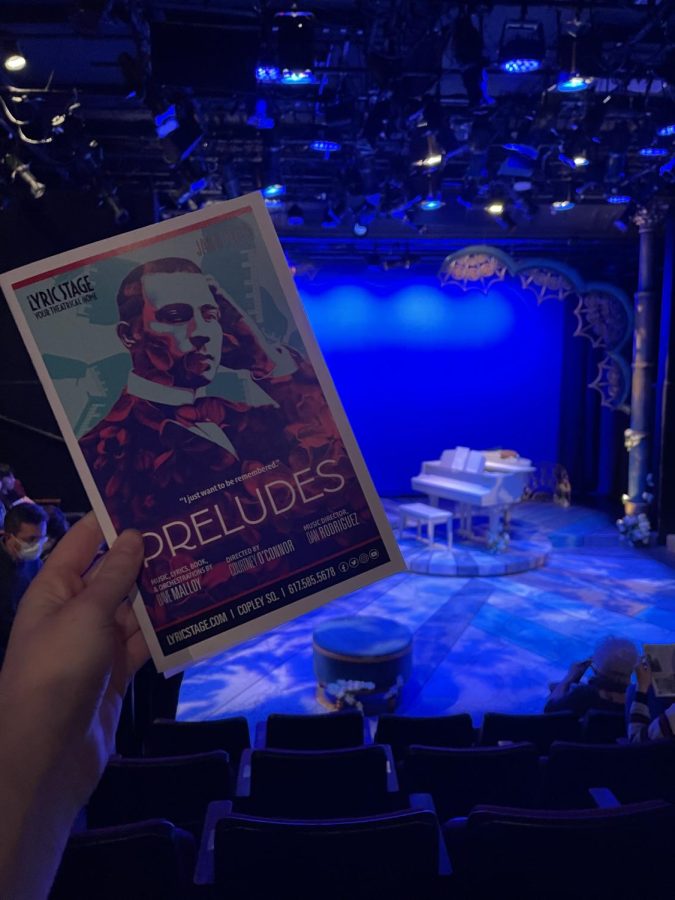‘Preludes’ by Dave Malloy is Genius in the Key of C♯ Minor
Marlie Kass ’23 awaits the start of the play. Photo courtesy of Kass.
I can be very judgemental about my theater. I know that. I love it so dearly that while I’ll always enjoy watching it, afterward, I will ruthlessly pick apart a show until there is nothing left to criticize.
So I’d say it’s rare, especially in the recent past, that I can fully say I’ve witnessed something where the show (its actual script, music, lyrics, etc.) and the production (the actors, the design, the direction, etc.) are both extraordinary.
This month I did. Not at a big Broadway spectacle, but at a small, regional theater with a wholly unique musical.
Preludes by Dave Malloy at the Lyric Stage is a glittering gem in every sense and could very well be one of my favorite shows I’ve ever seen.
And I went in with very high expectations. Dave Malloy, who wrote the book, music, and lyrics, is one of my all-time favorite creators, as I’m sure it doesn’t take long talking to me to find out (If you have a spare three hours, please let me talk to you about Ghost Quartet. Thank you.)
His works always break theatrical conventions, whether it’s an “electropopera” based off of a 70 page sliver of War and Peace, or an acapella chamber choir musical about a technology-addiction support group portrayed using tarot card imagery.
Preludes is no exception, billed as “a musical fantasia set in the hypnotized mind of Sergei Rachmaninoff.”
In a simplified summary: Preludes is about Rachmaninoff, the early 20th-century Russian composer, meeting with a hypnotherapist as he relives what led him to a three-year-long creative writing block and deep depression.
However, the show is no common biopic of a famous figure. It‘s written from the point of view of the inside of Rach’s consciousness—messing with the order of events, fully immersing the audience in the artist’s lowest and highest points.
To do so, Rachmaninoff is played by two actors. Dan Prior is “Rach,” representing the flawed human behind the famous composer. Meanwhile, music director Dan Rodriguez is mostly stationary at a stunning white grand piano in the center of the stage, as he plays the classical underscoring of the show as “Rachmaninoff,” the artist in the public eye.
On that note—and on that pun—the music truly is the (sometimes literal) beating and pulsing heart of the show. The score mixes up compositions by Rachmaninoff, other classical composers, and original elements by Malloy, usually with an electric flair that somehow meshes together perfectly. From the music chosen to underscore Rach’s sessions with Dahl, a historically-gender-swapped Nikolai Dahl played with both seriousness and compassion by Aimee Doherty, to the original songs sung by Rach and those in his life to convey their layered emotions, each piece is unique and works as a perfect piece within the eclectic puzzle.
It’s not an easy score, but the cast impresses without fail. Kayla Shimizu as Natalya, Rach’s fiancée and cousin (a squicky yet true historical plot point), ends the first act by fully embracing her character’s moment mulling over her complicated relationship with Rach in his current spiral with theater-shaking talent. Meanwhile, Anthony Pires Jr., can do it all as Challipan. From legit operatic singing to his act-two number “Loop,” which is a moment that can not be fully explained in print but must be experienced live. Besides, watching Rodriguez expertly play the complicated piano score is worth the price of admission alone. He is even occasionally joined by the other characters, showcasing the across-the-board multi-talented cast.
Acting-wise, Prior truthfully and carefully brings to life Rach in all his complications. It’s an incredibly well-done portrayal of an artist going through a very tough time without ever feeling over-the-top or indulgently angsty. Even when it comes to a climatic disaster in “The First Symphony,” Rach’s snapping at his critics and audience members bringing him down is extremely cathartic with the full investment of all the performers. The show takes itself with just the right level of sincerity.
One final thing that makes Preludes so uniquely successful is how it deals with time. Not just that the sequence of the events portrayed isn’t necessarily chronological within the story, but that the script and score purposefully contain historical anachronisms that take it beyond its supposed early-20th century time frame.
Rach sings of riding the subway after he is invited to meet with Leo Tolstoy (Will McGarrahan, somehow expertly juggling nearly half a dozen roles) and chastises audience members for staring at their phones during a performance. This is echoed throughout all elements of the show, from the music to the costuming—the one element I admittedly didn’t adore, as the mishmash of periods from character to character did appear more like some actors forgot to change before exiting the dressing room than it did to add to the ambiguity of the piece.
While very confusing at first, it eventually becomes clear that the only thing to do is to let go of any preconceived notions of what kind of story Preludes will be telling—it goes so far above that.
Thus, the story is elevated beyond just one historical figure. It becomes a deeply modern, universal tale of what it feels like to be trapped by your own mind and the struggle it takes to emerge. Creative genius or not, it’s an extremely inspiring—and eventually comforting—journey to watch.
























































